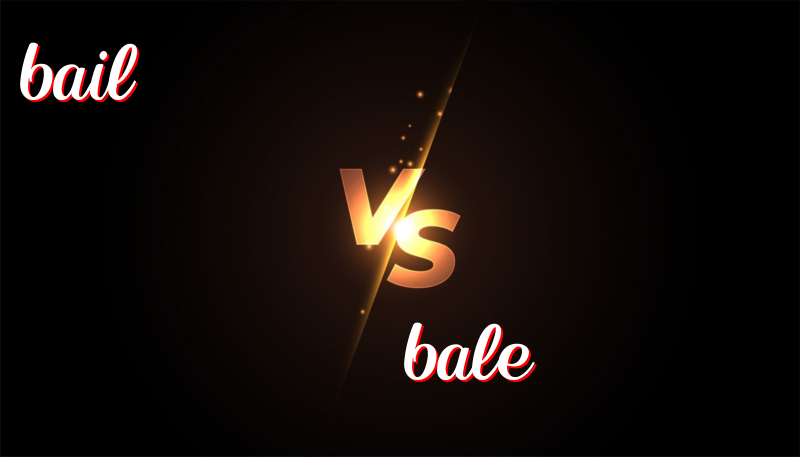Understanding the Difference Between Bail and Bale: Definitions, History, Usage, and Examples
Bail vs. Bale
History of the Words
The word bail comes from an old English word for giving money to get out of jail. The word bale comes from an old English word for a bundle of goods.
How to Use the Words
Bail is a noun and a verb. As a noun, it means the money you give to get out of jail. As a verb, it means to get someone out of jail.
Bale is a noun. It means a large bundle of things like hay, cotton, or paper.
Trick to Remember the Difference
Think of bail as helping someone get out of jail. Picture them raising a bailed (bailed) fish out of water, which helps them “get out.” For bale, think of a farmer. Picture him with a ball of hay, which he wraps into a big bundle.
Examples of Bail
- He paid bail to get his friend out of jail.
- The judge set bail at $500.
- Can you bail me out of jail?
- She couldn’t afford the bail amount.
- They had to bail him out again.
Examples of Bale
- The farmer tied the bale of hay.
- The cotton was packed in a bale.
- The workers stacked a bale of paper.
- He lifted the bale with a forklift.
- They shipped the bale overseas.
Summary
Remember, bail is for getting out of jail and bale is a large bundle of things like hay or cotton. The difference is important, so use these tricks to remember which is which!

Leave a Reply
You must be logged in to post a comment.